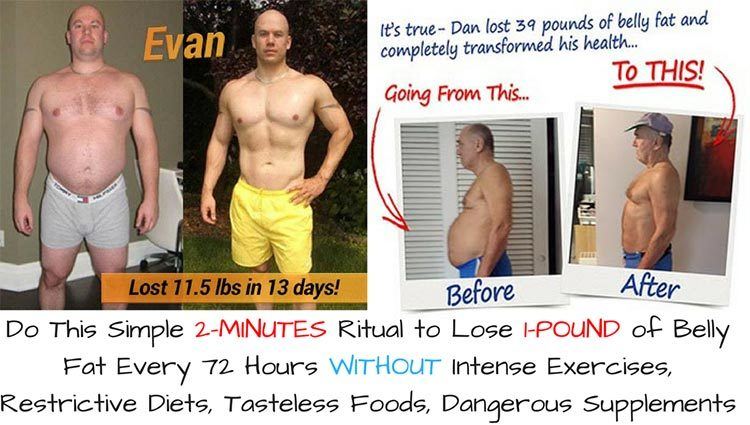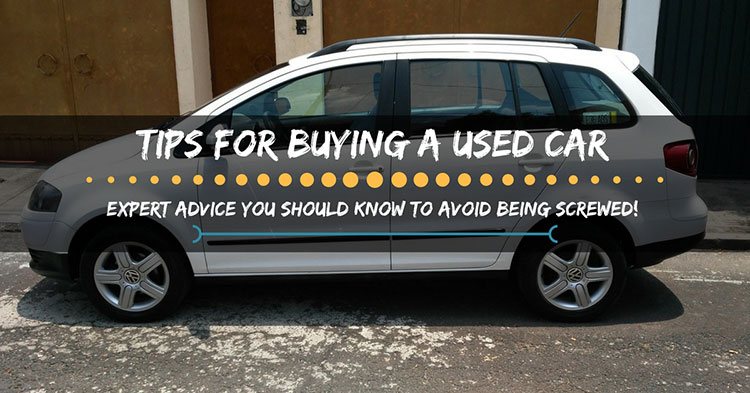
Tips for Buying a Used Car – Expert Advice You Should Know to Avoid Being Screwed!
Have you been eyeing for a particular car model but hesitant to buy the brand new model? Then perhaps you have finally found a used car of the same model but not sure if it’s a good deal or not.
More...
Purchasing a secondhand auto can be a bit challenging because it could either make you go home happy or the start of your road nightmare! Of course, we don’t want the latter one as much as possible.
Every used car is unique, depending on its history and the owner. So it is very critical to check out a few factors before you shed out your hard-earned money. Patience is a virtue and you should not let your heart go over your head when making the purchase. Follow my advice and in the long run it will surely pay off.
Compelling Reasons Why You Might Want to Consider a Used Car
A few years back I’ve been dreaming of getting my own Chevrolet but I got hesitant to pay a car loan for years. That time I just found it unpractical and too expensive. But finally, I found the same model I like 2 years ago and it was sold at a very low price! I checked it out and after it passed all my specifications, I went home happy with my dream car knowing that I have saved a lot!
We all have our personal reasons for choosing a used car rather than availing the new one. Here are a few reasons I had for buying a used car:
- If you can’t afford to buy a brand new version of a particular model you’ve been dreaming of for a long time, buying the secondhand can help you avail it at a depreciated cost.
- You prefer to buy a used car with on-hand cash rather than putting up with a few years of payments for a brand new model.
- You find more value in purchasing a used car than pouring out a lot of money for a brand new car to save more cash.
- You can enjoy favorable financing rates from a dealership if you prefer to avail a used car.
Factors to Look for When Buying a Used Car
When I got my Chevrolet, I had no regrets because I know I’ve made the right choice. I made sure it passed all my requirements and guess what – I’m still enjoying my ride until now without spending so much on repairs. So how did I make the right choice? Check out my list below and I hope the tips can guide you as well when buying a used car.
1. Know Your Budget

Via blog.dcag.ca
Knowing your limit will definitely help you decide if a particular car is what you really needed. If you are paying a price almost the same of buying a brand new one (not to mention that you still have to pay for other expenses on the way, such as gas, repairs, and maintenance), then you need to think twice before handing over that money.
When I brought the car, I made sure that I don’t only prepare the initial payment for the purchase but also a budget for minor repairs to make my auto roadworthy. Until now, I had no regrets!
2. Check the Inside of the Car
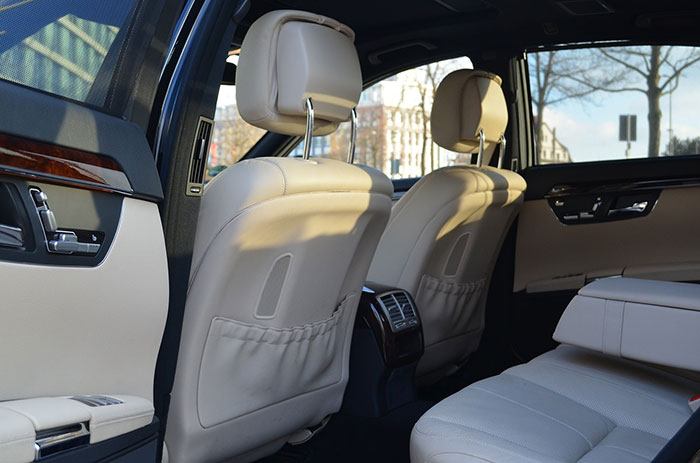
Before you hand over your money, you might want to know the following first:
- Service History

The service history of the car will help you know the maintenance and replacements done on the vehicle, as well as a persistent issue or fault that might still need to be fixed. Remember, a bad history of an auto is definitely a big turn-off.
- Wear and Tear of the Interior
Check the amount of wear and tear of the interior. Does this correspond to the expected amount of wear for the age and mileage of the car? If not, then you should walk away.
- Condition of the Trunk
Inspect the carpet. Is it still in good shape? You may easily change a worn-out carpet but it could still be a bit expensive. Is the spare tire and jack still intact? If no, then the risk is on you.
3. Inspect the Condition Under the Hood
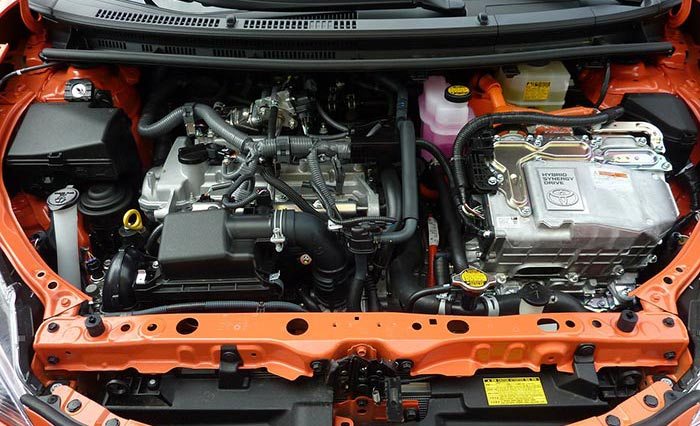
Few years back before I bought my first secondhand car, I got attracted to buy a van because of its very low price. At first it looked really good as new, but when I checked the engine bay, I saw signs of fillers which could mean that the car might have been involved in a collision. The vehicle was already 10 years old. So what I did is I didn’t buy the auto and walked away.
The components under the hood can also be critical in assessing whether a used car is worth your money or not. I would suggest you to inspect the following:
- Car Engine
Take a look at the engine. Does it look too clean? If it does, then it must have been cleaned due to a defect like oil leaks. Engine oil leaks are often caused by aging gaskets and seals.
I’ve found a video below worthy to watch if you want to test the engine of a secondhand car:
- Oil Cap
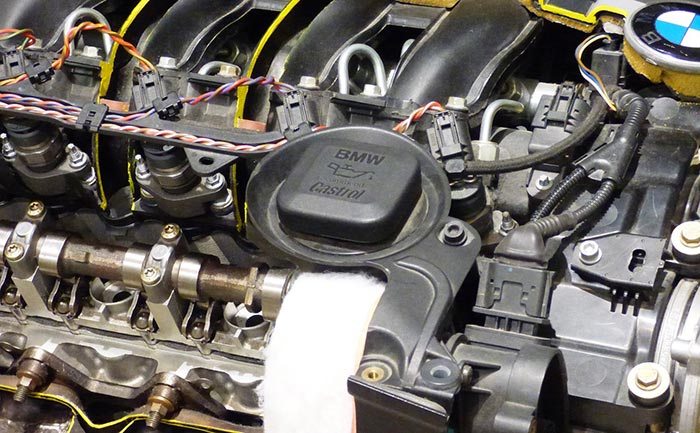
Check out if there’s a white creamy substance inside the oil cap. If it does, then it’s going to be a bad investment. A broken head gasket or the auto being used many times for very short trips are all going to cost you a lot for repairs.
- Check for Any Fillers
As what I’ve mentioned above, seeing any signs of fillers in the engine could mean that the car might be involved in an accident during its past life. This will not make it a good buy because there could be other components damaged inside caused by the collision.
4. Check the Exterior Side
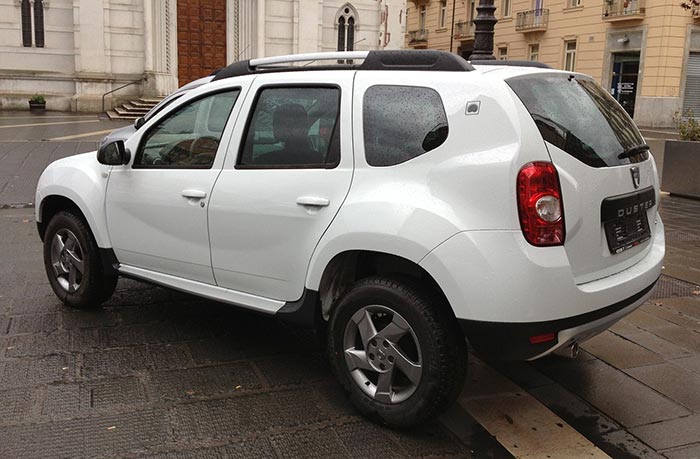
The exterior surface of the auto is among the easiest factors to notice whether a car was well-taken cared of by its previous owner. See if you can find faults on any of the following:
- Condition of the Paint
Does the paint of the auto look great? If you see any scratches or dents, then it’s a sign of a careless previous owner. Damaged paint can cost you a lot for repairs. You don’t want to take the risk for a car that will drain your wallet, don’t you?
- Front Fender
The presence of scratches under the fender could mean that the previous owner doesn’t care to slow down on speed bumps. Who knows what components are damaged inside caused by this careless act? You might need to replace the ball joints, shocks, and many others that will further increase your expenses.
- Signs of Damage on the Rims
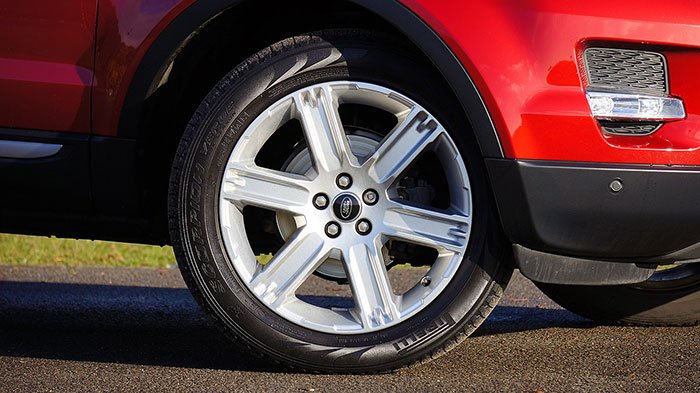
Do you see any signs of damage on the rims? Then it’s a bad omen. Rims are quite expensive to repair and you can expect the steering parts that are easily worn out. I advise you to walk away.
- Door Handles Condition
Noticed some scratches on the handles? The previous owner might be careless in placing small toys and other stuff inside the car. Who knows what other damages are present inside?
- Check the Tires
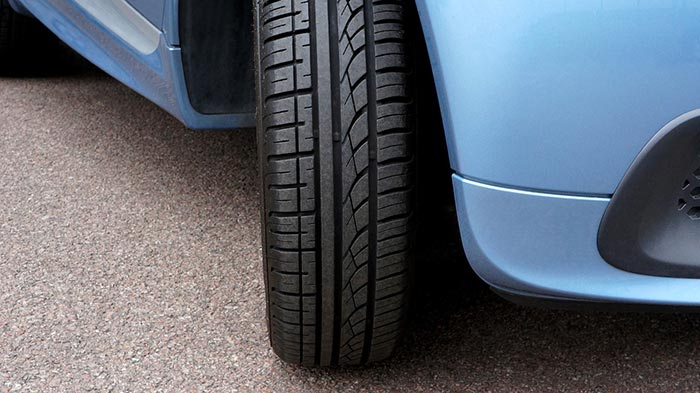
Although you can afford to change the tires, but seeing that the previous owner has failed to replace this basic item is a bad sign. He may be too cheap to do the basic replacements (how much more on other critical replacements). Inspect for mismatched tires. If you see one, I suggest you to walk away.
If you want to get more info on how to inspect the interior and exterior of the car, please watch the video below:
5. Test-drive the Car
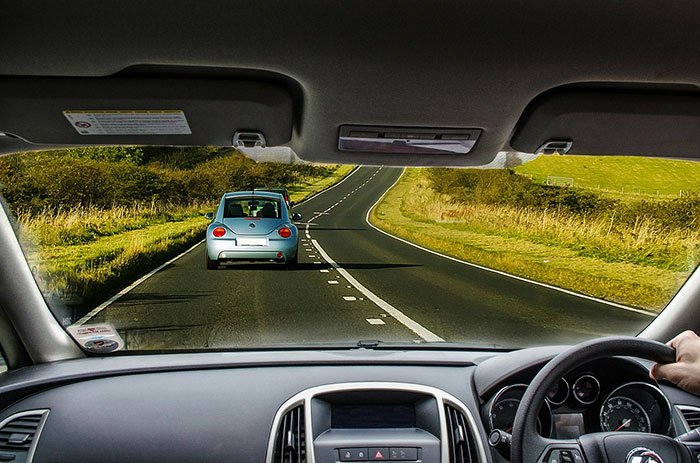
Test-driving could reveal to you a lot of things you need to know about the car. You might want to do the following tests to determine if the car is worthy:
- Steering Wheels

Start the car and try to accelerate 30 mph. Does it make sounds or shaking when you turn the steering? Does the car tend to steer more to the left or right when driving on a straight path?
- Gearbox/Clutch
Try to check if the clutch is worn out. Do you get a soft or spongy feel on the clutch? While driving, try to know how far you have to let your clutch out or if it’s slipping.
- Engine Temperature
Most car engines have a normal operating range between 195 and 220 Fahrenheit. If you notice that the engine temperature is out of the normal range after driving a few miles, then it should worry you.
- Car Lights
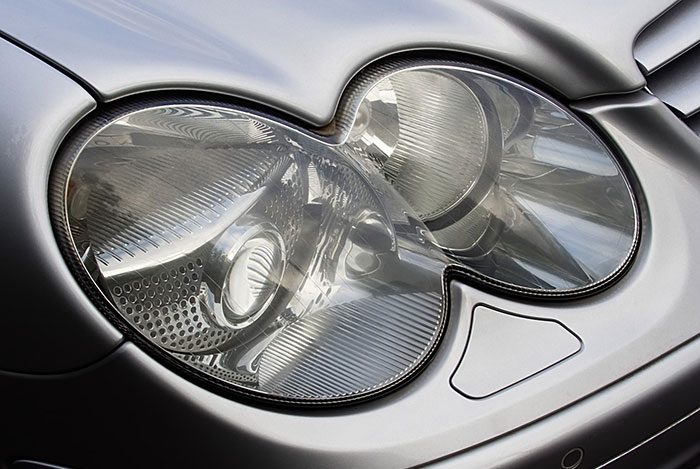
Does the headlights illuminate normally? Does the dashboard show any warning signs? Do you see any burned-out bulbs? Everything should work normally or you risk spending a few bucks for the replacements.
- Brakes
Don’t forget to check if the brakes are in perfect condition as well. Drive with an acceleration of 30 mph and try to do a panic stop to see if the brakes are still working.
- Engine Noise
Does the engine make strange noises when you do full-throttle acceleration? Do you hear weird noises? Time to check it out how much repair would cost you for any faults in the engine parts.
- Air Conditioner/Heater
Try to check if the ventilation fan doesn’t make any weird noises. Try to put the air conditioner at the lowest and highest settings to see if it still working properly.
- Check the Car Mileage
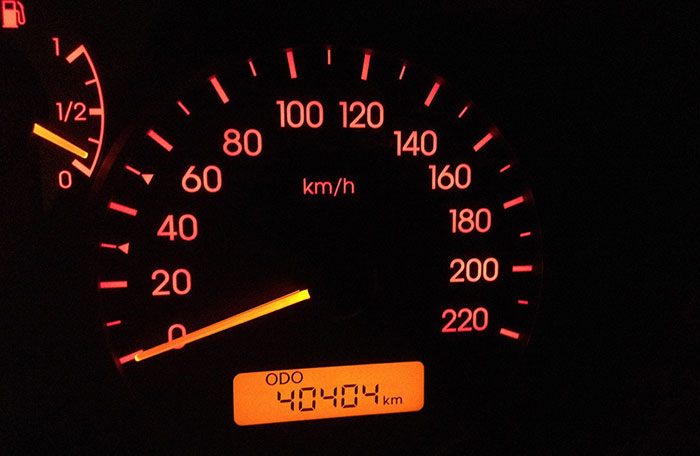
A high mileage could mean you need to replace more parts or components. From my past experiences, your car can generally start to wear off around 37,000 to 44,000 miles.
Brake pads and fuel filters are often some of the parts that will wear out with a high mileage. Getting a record of the car’s maintenance schedule could help you a lot when assessing the auto you want to buy.
6. Price Negotiation

When I bought my car, I have found out that there were minor stains hidden within the seats and need to be replaced. The owner agreed to lower the price and I had the seats replaced. It was like good as new and I really made a great deal!
Once you have decided to make a purchase, don’t forget to negotiate the price, especially if you’ve seen other defects that need replacements.
- Inspect the Seats and Carpets
See if the seats have proper cushioning. Check for any hidden stains as well as other possible damages. The seats and carpets can be easily replaced but it can be very expensive, especially the ones that have airbags and electric motors.
- Car Financing
If you bought the car from a dealership, chances are you might avail a financing option in case you don’t want to pay the car in bulk amount. Check any local dealership in your area that have low rates to help you pay your vehicle.
7. Get the Paperwork Done

Unless the car is still under the warranty from the manufacturer, you might want to consider an extended warranty to protect your purchase, especially if you got the car from an auto dealership.
Or if you are buying the used car from a private person, make sure that all the documents are transferred to you. This includes the title and registration.
Check for any past-due fees you need to pay when purchasing the vehicle to avoid the headaches. Don’t forget to have the seller sign all the necessary papers to prevent after-sales hassle.
Before moving to the final step, I just want to share you my story as a person who also wants to buy a used car.
Just like you, I am a mom with 2 children and I do not have so much money to buy a new car so the best choice now is the old one. But although you got through all of my article above I bet you are still confuse and it is really hard to decide to “BUY IT” or “DO NOT” for the newbie like us. It can push us at risk with so many problems even though you are an expert’s car.
I have spent at least one week to find the answers for myself on the internet like:
There are a ton of questions in my mind at that time and finally I was introduced by my friend(she is a single mom with 2 boys like me) to buy an old one here: GOV – AUCTIONS
So What is GOV – AUCTIONS?
GOV – AUCTIONS (Government and Police Auctions for Cars, Trucks and SUVs) is a company that not only offers you different types of cars but in this company you can also find trucks and sports cars. The company works with different brands such as Audi, Lexus, BMW, Nissan, Maserati and many others and each of their vehicles is sold out to the customers with a guarantee. It is America's most trusted source for Government seized and surplus car sales.
As a company GOV – AUCTIONS has a lot of advantages:
Before I went to the company I visited their official website, just to make sure I chose the best one for me. Since I have a low budget I looked for the prices. And I was so surprised by their great offers. They have cheap cars and a lot of discounts.
Plus, I saw the reviews on each car and people were telling how much extra money they saved when they made a deal with the company.
It isn’t a reliable source if someone says that they bought a good quality car by a very low price. But, there were so many good reviews by people about the quality of the cars, telling how much money they saved for a car in an exchange for a good quality.
It felt like a relief when I saw they give you a guarantee for the car you want to buy. I didn’t know if the company is trustworthy, but I found out they have Listings guaranteed in every US state.
It is very difficult if you don’t know what car model you want because in GOV- AUCTIONS, you have so many choices and you just don’t know what to choose. They have 1000’s new models weekly, luxury cars, sports cars, family cars, trucks and a lot more.
If you are having difficulties in understanding the process of buying a car on auction, then the company offers you a 5 Day Comprehensive tutorial that will teach you everything you need to know and prepare you for the final day. Isn’t that a great advantage?
Since you become a member you will have 24/7 access to all the databases of auctions and also the listings of all the available cars, trucks and sports cars on SALE. Also, you will have access to all databases for seized Boats and Vessels, personal property items and seized Real Estate.
So, if you want to buy a secondhand car, don’t waste your time looking for a good company, because I just described you one. For more information, you can go on GOV – AUCTIONS.
The Bottom Line!
Now you have read all the tips I’ve mentioned above, it’s time to make a decision. Is the car you’ve been eyeing for worthy to purchase? If yes, then you deserve to celebrate (maybe a simple drive-through dinner)!
I do hope you can find all the tips mentioned above helpful in finding your new ride. If you have any comments or question, do not hesitate to type them below. Share this info with your friends as well!

